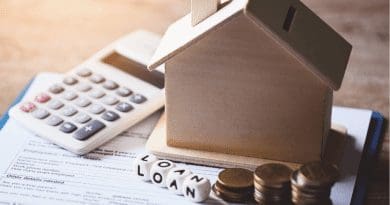A Reverse Mortgage: What You Need to Know
A reverse mortgage is basically a loan. Homeowners 62 and older who have established home equity can borrow money against the value of their property. These homeowners may get the funds as a line of credit, a flat sum, or a fixed monthly payment.
In contrast to the mortgage used to buy the property in the first place, this ind of financing does not require the homeowner to make any payments. This is the ideal situation for many individuals who have reached retirement age.
The vast majority of borrowers do not repay their reverse mortgages in full. After their death or after they have moved out, the house will be sold to pay off the mortgage, and any excess proceeds will be distributed to their heirs. Another possibility is for their heirs to repay the loan, preventing the house from being sold.
In this article, we will explore the various types of reverse mortgages, reverse mortgage requirements, and the key benefits of reverse mortgages.
To learn about your reverse mortgage details, it is preferred to use a reverse mortgage calculator.
Types of Reverse Mortgages
· Single-Purpose Reverse Mortgages
They are provided by certain state and local governments as well as charitable groups. This is the most cost-effective solution.
They are not publicly available and can only be used for one single purpose that is specific to the government or the charity lender. Property taxes, as well as home repairs and/or improvements, are instances of this.
The majority of homeowners with low or moderate incomes may qualify for these loans.
· Home Equity Conversion Mortgages (HECMs)
They have the backing of the United States Department of Housing and Urban Development (HUD). HECM interest rates and origination fees are usually higher than those of traditional mortgages.
This is an important factor, especially if you want to stay in your home for a short period or borrow a little money. Because HECM loans are so easily available and have no income or health restrictions, they are appropriate for any activity.
You must contact a housing advisor whom the government has approved before applying for this kind of loan.
· Proprietary Reverse Mortgages
Mortgages of this kind are private loans, also known as Jumbo Reverse Mortgages, that are backed financially by companies. These loans, like HECMs, may be expensive and used for any purpose the borrower sees appropriate.
Reverse Mortgage Requirements
There are several limits on who may get a reverse mortgage. To qualify for and keep a reverse mortgage, borrowers must recognize and accept responsibility for the following commitments:
- To maintain the house in good condition
- To pay property taxes
- To pay for homeowner’s insurance
- To make the property their main home
Key Benefits of Reverse Mortgages
A reverse mortgage might be the answer if you’re having difficulties keeping up with your monthly expenses and other financial obligations. Here are some of the benefits of taking out a reverse mortgage:
· You Can Secure Your Retirement
Retirees who have collected a considerable amount of money in their homes but have little liquid assets or investments to depend on in retirement are the ideal candidates for reverse mortgages.
A reverse mortgage may be used to turn an asset that would ordinarily be difficult to sell into cash that can subsequently be utilized to pay for retirement obligations.
· You Will Not Be Subject to Taxation
The money you receive from a reverse mortgage is classified as a loan advance rather than taxable income by the Internal Revenue Service. This indicates that, unlike other sources of retirement income, the funds are tax-free.
· If the Balance Is Higher Than Your Home’s Value, You’re Safe
In rare cases, the value of your home may end up being less than the total amount owed on the reverse mortgage. This may happen, for example, if property values fall. If anything like this occurs, your heirs won’t have to worry about how to pay the remaining balance.
Conclusion
A reverse mortgage allows you to access the equity in your home without having to sell it. During retirement, these accounts may provide extra funds to pay down debt, supplement living expenses, and cover unanticipated bills.
Furthermore, unlike with home equity loans, you will not be compelled to make monthly payments. Reverse mortgages typically require repayment only when the homeowner sells their house, moves out, or dies, and the profits from the sale are used to pay down the reverse mortgage sum.
As long as you continue to pay your monthly housing costs, such as property taxes and homeowners insurance, the reverse mortgage lender will not get title to your house and will not be able to sell it.
You may keep the property even if you move out as long as you pay off the debt and keep it in your name. Furthermore, the government considers it a loan rather than income if you obtain money through a reverse mortgage. As a result, neither your Social Security nor your Medicare benefits will be affected.


